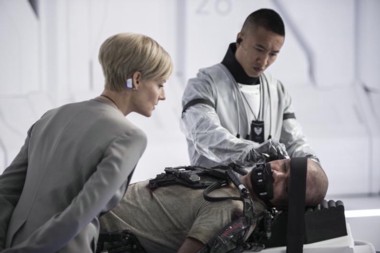Werner Herzog has always been a great director, and one who has, from the start, marched to his own very personal drumbeat. While it was his earlier art house features that made his name—films like Fitzcarraldo, Stroszek, and Aguirre: Wrath of God—it has been the director’s forays into documentary filmmaking that have proved to be his most enduring legacy.
Since 2005, when his film Grizzly Man proved a surprise hit—as much a hit as a documentary about the grisly death of an amateur bear enthusiast can be in this world—Herzog has had a string of successes in the genre. First there was Encounters at the End of the World, a look at a South Pole research community; later he gave us Cave of Forgotten Dreams, which explored a French cave system containing our earliest human art; later still came Into the Abyss, which featured conversations with death row inmates (a project carried on by Herzog’s TV series On Death Row).
But if Herzog’s subjects seem to carry him all over the earth, his films are united by their focus on something local to each of us: at their heart, each of his films is about our own human experience.
Rarely has that been on such raw display as it is in his latest film, the unusual short documentary From One Second to the Next. One of the things that make it so unusual is that you won’t see it in theaters. The 35-minute short, in which the director interviews people whose lives have been upended by terrible violence, was commissioned by AT&T and distributed to more than 40,000 high schools; it can also be found online, where I hope it will find many viewers. It’s about texting while driving.
Before you dismiss it as another lame PSA, remember that it’s Herzog; none of the usual platitudes are present here. Instead, you come face to face with the people involved on both sides of these life-changing events, telling their terrible stories in plainspoken English. In print, the raw details—an Amish family of three killed while Chandler Gerber texted “I love you,” a woman with a tube in her head to relieve pressure on her brain, or a rancher whose truck became a deadly missile when the car in front of him drifted across the center line and sideswiped an oncoming car—don’t convey the strength of emotion that Herzog captures on both sides of these accidents. These are awful wounds literal and figurative, and some of them will never close, and we are doing these things to ourselves every day.
This is a film for all of us, not just the teenagers so often singled out as the worst offenders. As the 70-year old Herzog noted in an interview with the Associated Press, “There’s a completely new culture out there. I’m not a participant of texting and driving—or texting at all—but I see there’s something going on in civilization which is coming with great vehemence at us.” Let’s hope that his film slows things down. For now, you can find it on YouTube.
Also this week: When Neill Blomkamp’s District 9 came out back in 2009, it was a revelation—a debut feature that was self-assured, visually compelling, and a critical and box office success that went on to score four Oscar nominations, including one for Best Picture. Blomkamp had pulled off a pretty neat trick: he made a movie about apartheid in Johannesburg, but he also made one heck of a sci-fi movie. In his world, the oppressed class of South Africa was an alien race stranded on our planet and herded into the slum that gave his film its title.
He tries to do it again with Elysium, more of a mainstream action blockbuster whose message about class and equality is buried a bit deeper this time around. (“I want to blow things up as much as I want to make films that are about serious topics,” Blomkamp says in the release notes.) In it, Matt Damon stars as Max, a member of the lower class, who lives on the surface of our 22nd century Earth, toiling away amid crime and poverty while the upper classes live on Elysium, a pristine space station orbiting above.
When Max is exposed to lethal levels of radiation during an accident on Earth, his only hope for survival—which becomes the hope of an unknowing populace—is to reach Elysium and demand equal treatment. Whether he gets what he needs, and whether Blomkamp can match the success he achieved with District 9, remains to be seen, but it should be fun to watch them try.•
Jack Brown can be reached at cinemadope@gmail.com.



